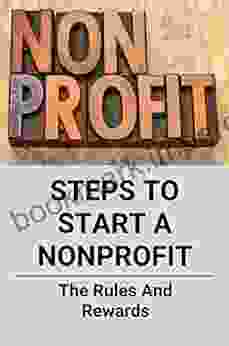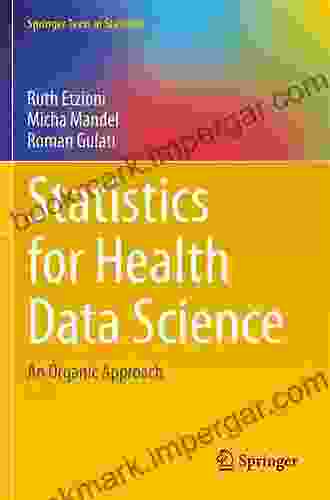An Organic Approach to Statistics: A Comprehensive Guide

Statistics has evolved significantly over the years, with the emergence of new approaches and techniques that challenge traditional statistical practices. One such innovative approach is the organic approach to statistics, which emphasizes the importance of understanding data in its context and making inferences based on a holistic analysis of the data. This article provides a comprehensive overview of the organic approach to statistics, exploring its principles, significance, and applications in various fields. We will also highlight the book "An Organic Approach: Springer Texts in Statistics" as a valuable resource for gaining a deeper understanding of this cutting-edge statistical approach.
Principles of the Organic Approach to Statistics
The organic approach to statistics is rooted in the belief that data should be analyzed in a way that respects its natural structure and complexity. This approach emphasizes the following principles:
4.6 out of 5
| Language | : | English |
| File size | : | 7332 KB |
| Screen Reader | : | Supported |
| Print length | : | 244 pages |
- Contextual Understanding: The organic approach places a strong emphasis on understanding the context of the data, including the research question, study design, and data collection methods. This contextual knowledge helps in interpreting the data accurately and making meaningful inferences.
- Holistic Analysis: Rather than relying on isolated statistical tests, the organic approach advocates for a holistic analysis of the data. This involves examining the data from multiple perspectives, using both graphical and numerical techniques, to gain a comprehensive understanding of the patterns and relationships within the data.
- Non-Parametric Methods: The organic approach often favors non-parametric methods over parametric methods. Non-parametric methods make fewer assumptions about the distribution of the data and are therefore more robust to deviations from normality.
- Hypothesis Generation: In contrast to traditional hypothesis testing, the organic approach encourages the generation of hypotheses based on the data rather than formulating them a priori. This allows for more exploratory and inductive reasoning, leading to a deeper understanding of the data.
- Statistical Significance: While the organic approach acknowledges the importance of statistical significance, it does not rely solely on it to draw s. The approach emphasizes the need to consider the practical and theoretical significance of the findings in the context of the research question.
Significance of the Organic Approach
The organic approach to statistics offers several key advantages over traditional statistical methods:
- Increased Flexibility: The organic approach is more flexible than traditional methods, allowing researchers to adapt their analyses to the specific characteristics of their data and research questions.
- Enhanced Interpretability: By considering the context and using holistic analysis, the organic approach leads to more interpretable results, making it easier for researchers and decision-makers to understand the implications of the findings.
- Improved Generalizability: The emphasis on non-parametric methods in the organic approach enhances the generalizability of the findings, making them more applicable to a wider range of populations and contexts.
- Greater Applicability: The organic approach is applicable to a diverse range of research questions and data types, making it a versatile tool for researchers in various fields.
Applications of the Organic Approach
The organic approach to statistics finds applications in a wide range of fields, including:
- Medical Research: The organic approach can help researchers understand complex medical data, identify patterns, and make informed decisions regarding diagnosis, treatment, and prevention.
- Environmental Science: The organic approach can be used to analyze environmental data, assess the impact of human activities on ecosystems, and develop sustainable solutions.
- Social Sciences: The organic approach is valuable in analyzing social data, understanding human behavior, and informing policy decisions.
- Business and Economics: The organic approach can assist businesses and economists in analyzing market trends, forecasting demand, and making data-driven decisions.
- Education: The organic approach can be used to evaluate educational interventions, assess student learning, and improve teaching practices.
An Organic Approach: Springer Texts in Statistics
For those seeking a deeper understanding of the organic approach to statistics, the book "An Organic Approach: Springer Texts in Statistics" is an indispensable resource. Written by renowned statistician Dr. B. Rosén, this book provides a comprehensive to the principles and applications of the organic approach.
This book covers a wide range of topics, including:
- The foundations of the organic approach
- Non-parametric methods
- Hypothesis generation and testing
- Statistical modeling
- Applications in various fields
Dr. Rosén's clear and engaging writing style makes the book accessible to readers from diverse backgrounds, including students, researchers, and practitioners. With numerous examples and case studies, the book provides a practical understanding of how to apply the organic approach to real-world data analysis.
The organic approach to statistics is an innovative and valuable approach that offers a more flexible, interpretable, and generalizable way to analyze data. By emphasizing contextual understanding, holistic analysis, and non-parametric methods, the organic approach leads to a deeper understanding of the data and more informed decision-making. For those seeking to gain a comprehensive understanding of the organic approach, the book "An Organic Approach: Springer Texts in Statistics" is a highly recommended resource.
4.6 out of 5
| Language | : | English |
| File size | : | 7332 KB |
| Screen Reader | : | Supported |
| Print length | : | 244 pages |
Do you want to contribute by writing guest posts on this blog?
Please contact us and send us a resume of previous articles that you have written.
 Book
Book Novel
Novel Page
Page Chapter
Chapter Text
Text Story
Story Genre
Genre Reader
Reader Library
Library Paperback
Paperback E-book
E-book Magazine
Magazine Newspaper
Newspaper Paragraph
Paragraph Sentence
Sentence Bookmark
Bookmark Shelf
Shelf Glossary
Glossary Bibliography
Bibliography Foreword
Foreword Preface
Preface Synopsis
Synopsis Annotation
Annotation Footnote
Footnote Manuscript
Manuscript Scroll
Scroll Codex
Codex Tome
Tome Bestseller
Bestseller Classics
Classics Library card
Library card Narrative
Narrative Biography
Biography Autobiography
Autobiography Memoir
Memoir Reference
Reference Encyclopedia
Encyclopedia Richard O Rawe
Richard O Rawe Vanessa M Gezari
Vanessa M Gezari Hugh Thomson
Hugh Thomson J David Markham
J David Markham Thomas W Merrill
Thomas W Merrill Ivan Vladislavic
Ivan Vladislavic Jaclyn London
Jaclyn London Izzy Rose
Izzy Rose Stanley I Kutler
Stanley I Kutler Rania Naim
Rania Naim Samantha Green
Samantha Green Isabel Ashdown
Isabel Ashdown International Code Council
International Code Council J M Bechstein
J M Bechstein Jonathan London
Jonathan London Hugues Duffau
Hugues Duffau Ian Falloon
Ian Falloon Julian Sefton Green
Julian Sefton Green Susan Baroncini Moe
Susan Baroncini Moe Iruka N Okeke
Iruka N Okeke
Light bulbAdvertise smarter! Our strategic ad space ensures maximum exposure. Reserve your spot today!

 Milan KunderaThe Horrifying True Story of Joel the Ripper: A Harrowing Tale of Murder and...
Milan KunderaThe Horrifying True Story of Joel the Ripper: A Harrowing Tale of Murder and...
 Esteban CoxIt's All About Honey: A Comprehensive Guide to the World's Most Delicious and...
Esteban CoxIt's All About Honey: A Comprehensive Guide to the World's Most Delicious and... Brian BellFollow ·7.6k
Brian BellFollow ·7.6k Alexander BlairFollow ·13.6k
Alexander BlairFollow ·13.6k Calvin FisherFollow ·6.9k
Calvin FisherFollow ·6.9k Theodore MitchellFollow ·18.2k
Theodore MitchellFollow ·18.2k Easton PowellFollow ·7.8k
Easton PowellFollow ·7.8k Jamie BellFollow ·8k
Jamie BellFollow ·8k Chance FosterFollow ·14.8k
Chance FosterFollow ·14.8k Eli BrooksFollow ·15.2k
Eli BrooksFollow ·15.2k

 Mike Hayes
Mike HayesUnlock Your Nonprofit Potential: A Comprehensive Guide to...
: Embarking on the Path to Impactful...

 Cody Russell
Cody RussellUnlock the Secrets of Captivating Radio Programming:...
In the fiercely competitive world of...

 Aron Cox
Aron CoxUnveiling the Enchanting World of Beth Inspired Eye...
A Realm of Imagination and Wonder Embark on...

 Felix Carter
Felix CarterUnlock the Secrets of Legal Publishing with West Hartford...
West Hartford Legal Publishing, the renowned...

 Henry Hayes
Henry HayesUnveiling the Secrets of the Panama Papers: Exposing...
The Panama Papers is a groundbreaking...
4.6 out of 5
| Language | : | English |
| File size | : | 7332 KB |
| Screen Reader | : | Supported |
| Print length | : | 244 pages |










